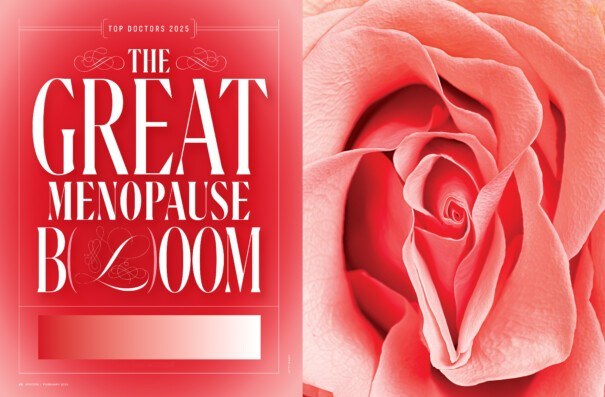The Truth About Hormone Therapy for Women Today
Why the once-stigmatized treatment is back for women under 60.

Photo via Getty Images
There was a time, back in the ’90s, when doctors were handing out hormone therapy pills to midlife women as casually as candy. After all, the magic combo of estrogen and progestin seemed like a miracle cure-all—supposedly preventing osteoporosis, heart disease, and dementia while crushing those pesky hot flashes and night sweats. Just take it with your morning coffee, simple as that. Until 2002, that is, when a bombshell study brought it all crashing down.Enter the Women’s Health Initiative (WHI)—a massive clinical trial meant to assess the benefits and risks of hormone therapy. Rather than show the therapy’s disease-fighting powers, it actually demonstrated increased risks of heart disease, stroke, blood clots, dementia, and breast cancer. Researchers halted the study, and doctors slammed the brakes on prescriptions, leaving countless women struggling with menopause symptoms and no relief in sight.
But here’s the kicker, as one of WHI’s own principal investigators, JoAnn Manson, was quick to point out: The risks were mainly seen in older, postmenopausal women—not the younger ones who could’ve really benefited from hormones. “It was misunderstood in many ways, and the results were extrapolated to women in early menopause who were having night sweats and hot flashes,” says Manson, now the chief of the division of preventive medicine at Brigham and Women’s.
By then, though, the damage had been done. As many doctors backed away from hormone therapy, a new player entered the game: compounding pharmacies pushing “bioidentical” or “natural” hormones. These quick-fix creams and gels seemed like a lifeline to women in need of help. But there was a catch. “With compounded [hormones],” Manson says, “the dose can be very variable, and there can be impurities that can cause harm.”
In other words, buyers beware. “We call it menoprofiteering and meno-marketing,” warns Shifren, of the often questionable products offered by the menopause wellness industry. Her advice? Run the other way “if you go on what you think is an educational website and next thing you know they’re trying to sell you ‘safe’ hormone creams—made from yams, made from plants—that will improve your mood, memory, sleep, and sex life.” The golden rule: “If it sounds too good to be true, it probably is.”
Here’s the good news: The tide is turning. A long-term follow-up to the WHI study, led by Manson, showed that hormone therapy can be a game-changer for women under 60 battling menopause symptoms. And these days, “there are many more primary care clinicians who are feeling much more comfortable with providing menopausal hormone therapy for symptomatic women in their fifties,” Shifren shares. So if hot flashes and night sweats are wreaking havoc on your life, don’t hesitate to explore FDA-approved treatment options with your doctor.
Still, finding a clinician who is comfortable prescribing hormone therapies can be tricky. “It’s still a problem,” Manson admits. “I get emails and phone calls from women around the country looking for help finding a clinician in their area who has expertise in menopause.”
Doctors’ best advice: Don’t give up. If you’re struggling to access care, Manson recommends visiting the Menopause Society’s website to find specially trained menopause experts near you who can help kick those symptoms to the curb. As Manson firmly notes, “WHI findings should never be used as a reason to deny hormone therapy for women in early menopause seeking relief of their bothersome menopause systems. The benefits outweigh the risks.”


Left: Photo by Getty Images
Related: The Great Menopause B(l)oom
- Myth Vs. Fact
- What to Expect
- The Truth About Hormones
- Ask an Expert: Four Modern Remedies
- Boston’s Research Breakthroughs (coming soon)
- Help! I’m Perimenopausal and My Instagram Feed Won’t Stop Selling Me Solutions
This article was first published in the print edition of the February 2025 issue as part of a package on menopause, with the title: “Cracking the Hormone Controversy.”


